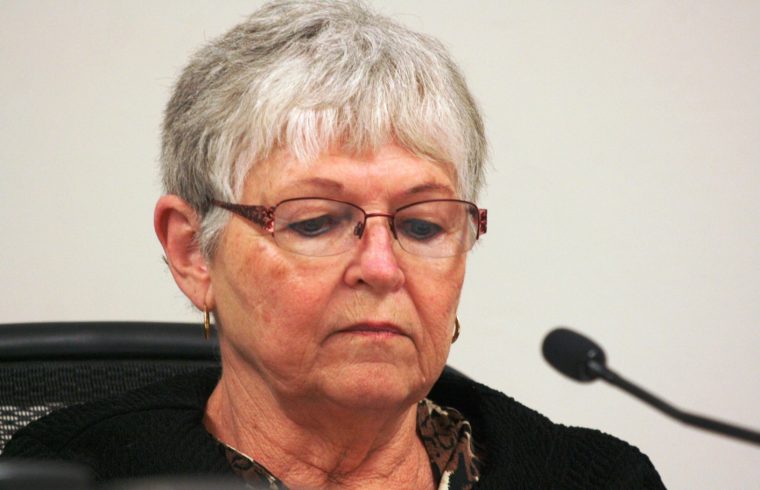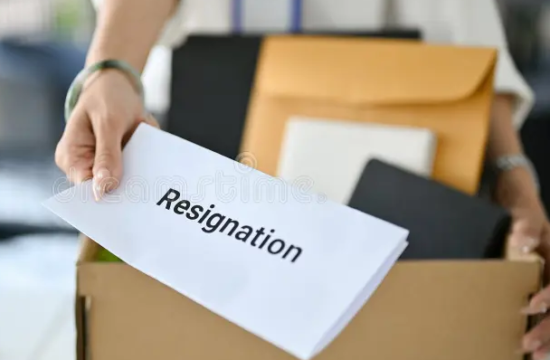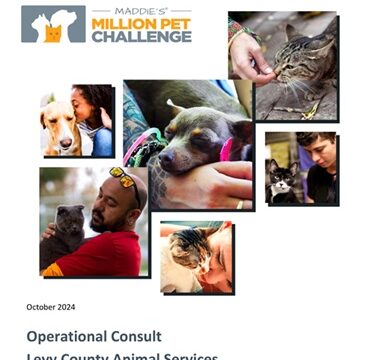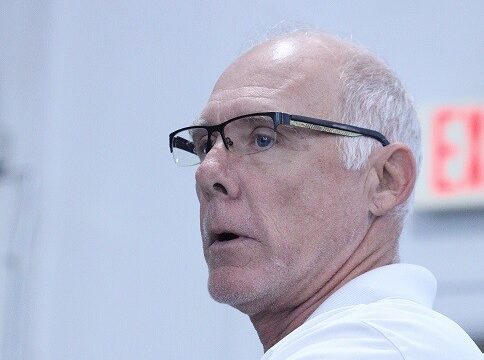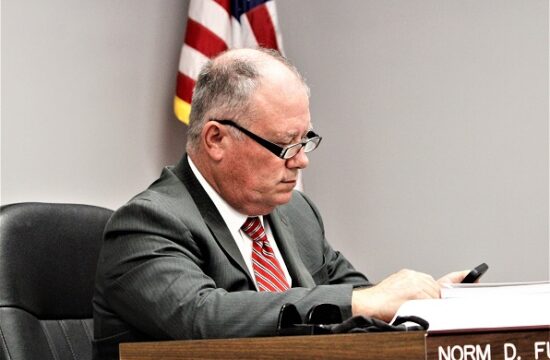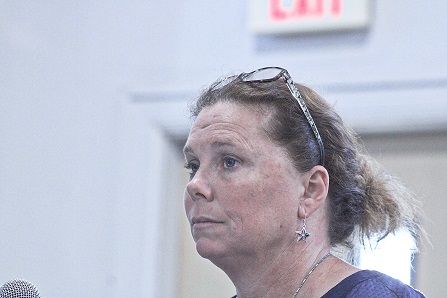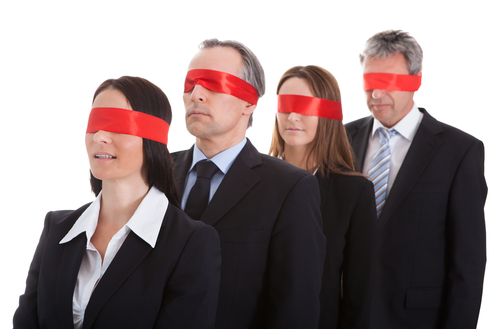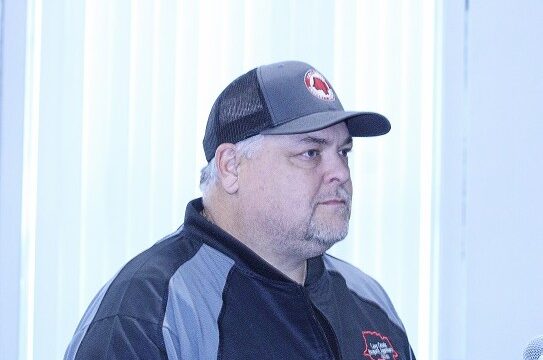County Commissioner Lilly Rooks said libraries should be open to all user groups.
By Terry Witt – Spotlight Senior Reporter
Levy County Commission Chairman Matt Brooks Tuesday assigned County Attorney Anne Bast Brown and Library Director Jeanine Turner to review the policy governing what groups and organizations can use public libraries as a meeting space.
The current policy allows non-profit organizations engaged in educational, cultural, intellectual and charitable activities to use libraries for meetings and doesn’t exclude any non-profit group based on subject matter or the ideas the group advocates.
Brooks said he wanted the policy to be as inclusive as possible and he wondered if the current policy should be amended to allow more than just non-profit groups to use the county’s public libraries.
“I feel that in some way we need to be totally inclusive in our verbiage. It would be my desire to be all-inclusive without specifically spelling out non-profits,” he said. “The way I read it, non-profits is 501c3. Can we change the language?”
Brown said she was proposing to update the library use policy and take a look at a related policy governing the behavior of residents using the county’s libraries. Library users are described as patrons in both policies.
“We have some suggested language from the American Libraries Association that is preferable; it doesn’t limit to non-profits,” Brown said.
The discussion of library policy got off to a rocky start when Commissioner Lilly Rooks told Brooks she didn’t ask to be placed on agenda to discuss library policy. Her name was listed as the board member who wanted to discuss library meeting space.
Rooks also said she didn’t say she would investigate the policy. Rooks said she volunteered to “look into it.” The board had been called to task at the previous board meeting for allowing Democrats to meet in the Bronson Public Library. Resident Toni Collins didn’t think libraries should be used for politics.
But Rooks said county commissions of the past always opted for a policy that welcomes any group desiring to use the library.
“The boards in the past have tried to be inclusive. We want to serve everyone, that’s our job; we serve everyone,” Rooks said. “The political groups have their meetings and they try to educate the people to come out and vote. I do not see why we would not allow political groups to use the libraries. That being said, I would hope the board would continue down that path.”
Brooks apologized for assigning the agenda item to Rooks. He said he was the one who requested the agenda item.
“We do need to find a direction. I wanted to speak to Attorney Brown as far as our current policy,” Brooks said.
Brown plans to examine the library space use policy and the “Patron Code of Conduct” policy for libraries. The patron code is a set of rules prohibiting library users from interfering with the enjoyment of the library by others. The code states:
“Library patrons engaging in unacceptable behavior will not be allowed to interfere with library service to others. Unacceptable behavior is defined as any behavior on library premises that infringes on the rights of others; behavior that could result in injury to oneself or others; or behavior that could result in damage to Library materials or property. Any patron engaging in illegal behavior will be asked to leave the library immediately, without a chance at behavior modification.”
The policy goes on to state: “Unacceptable library behavior includes but is not limited to the following (Note: some of these behaviors are considered illegal and may be treated as such):
- Damaging library materials or property
- Eating, drinking or smoking
- Causing bodily harm
- Threatening library staff or patrons
- Sleeping or soliciting on library property
- Entering the library without shirt/and or shoes
- Processing, consuming or being under the influence of alcohol or illegal drugs
- Verbal/physical abuse or sexual harassment of library patrons or staff
- Disruptive use of electronic devices such as I-pods, cell phones, and radios
- Displaying behavior inappropriate to the library environment.
Turner was asked if she assures that groups don’t disturb the peace and quiet of other library users.
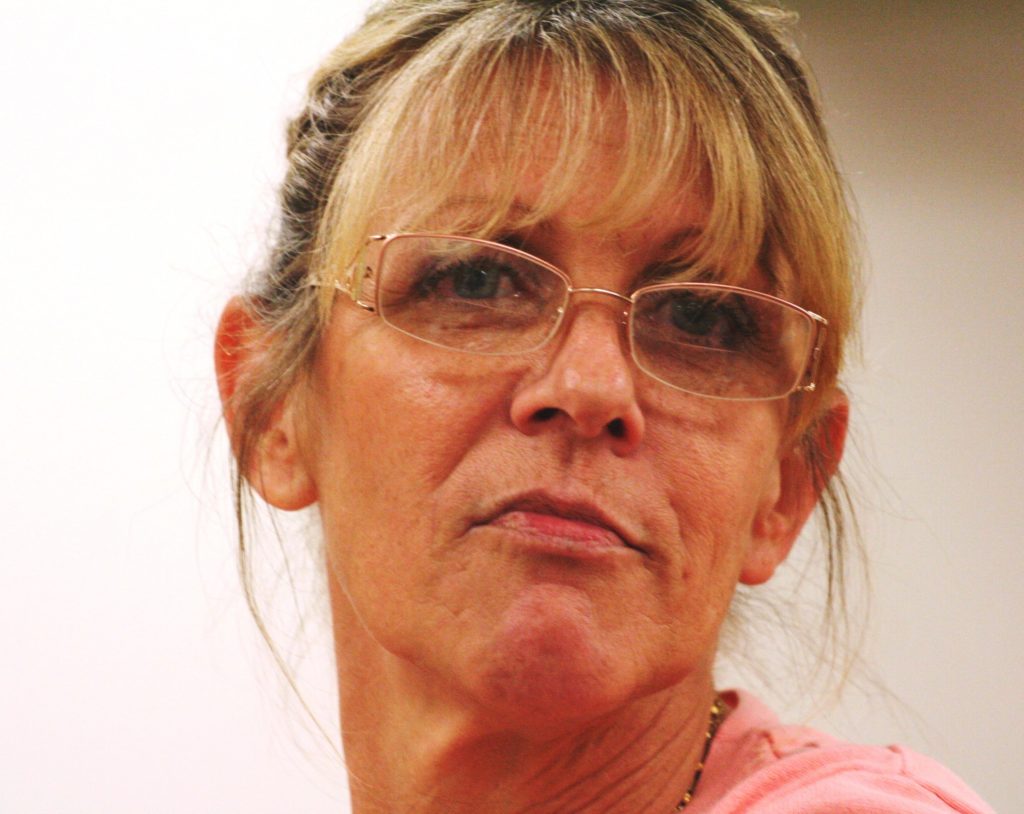
“Basically the same way we assure with all of our programs. We have children’s programs that go on; we have yoga and meditation and book clubs. We don’t encourage solicitation,” she said.
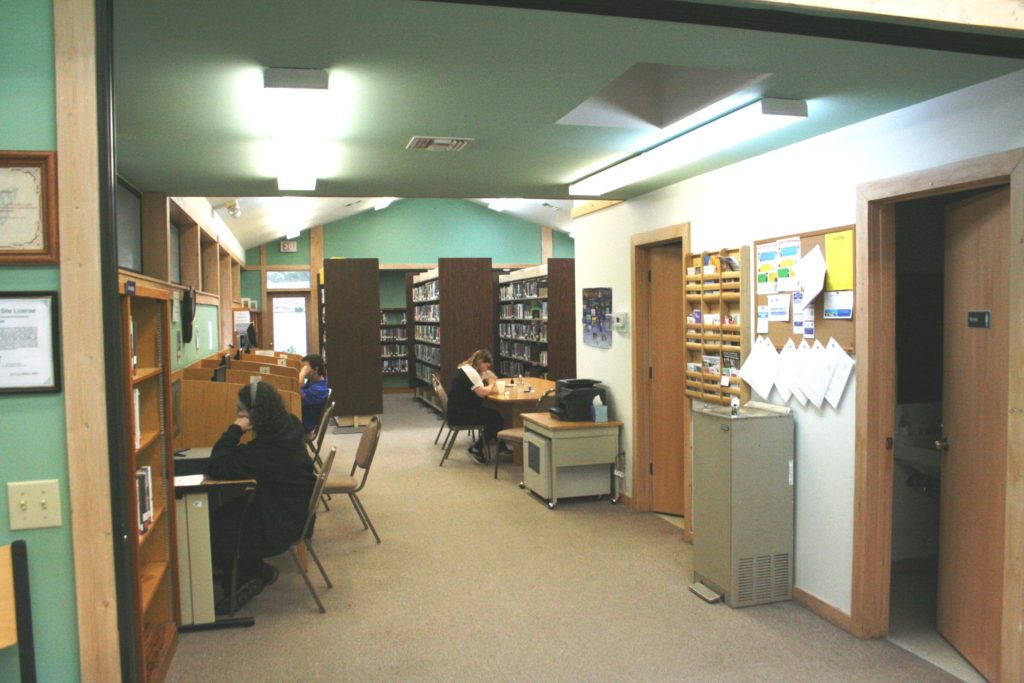
As far as noise from groups potentially interfering with peace and quiet of other library users, Turner said it hasn’t been a problem.
“It’s not been a concern,” she said.
She said some groups meet after hours and use a certified volunteer to open the door for them, remain in the library until they leave, and lock the door behind them.
“The volunteer is taking the responsibility by letting a group in, holding the keys, staying there throughout and then locking up, as would I be,” Turner said.
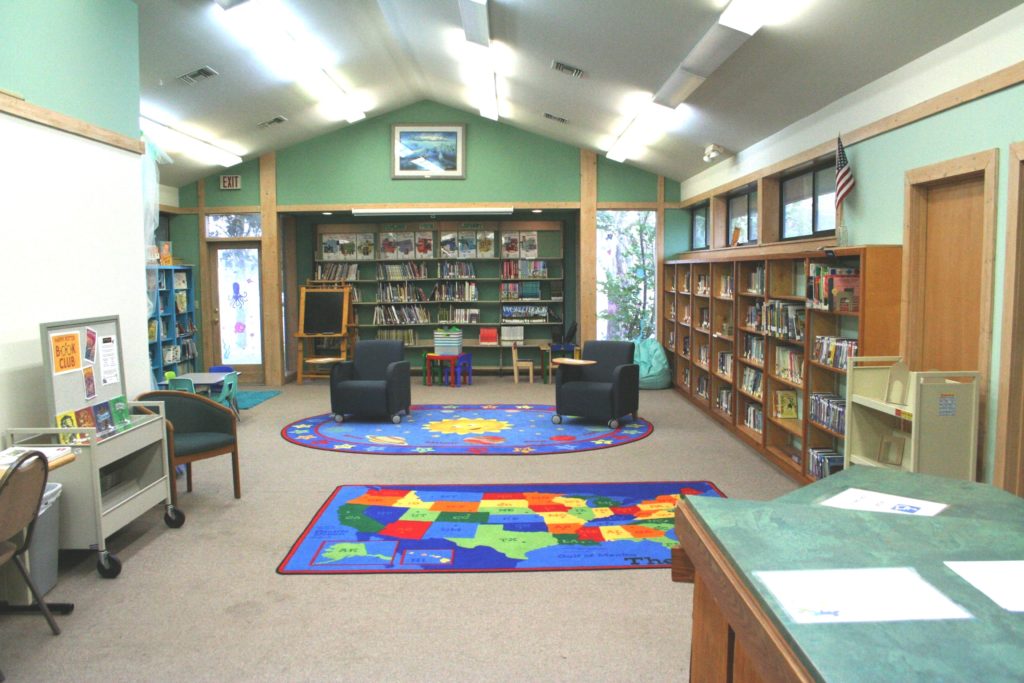
Commissioner John Meeks liked the current wording of the policy.
“I’m just going to say to be honest with you, I didn’t know we had an official policy and I got a copy of it and read it; I think the policy is pretty straight forward. If you’re uncomfortable with some of the language like non-profit, it clearly states that collection, funds solicitation and direct sales are not permitted; that kind of eliminates any for-profit groups.”
Meeks added that the county can’t stop people from using the library based on their beliefs.
“It is spelled out in this policy. This is actually, as
old as it is, one of the best pieces of policy I’ve seen, cause it’s short and
concise; it’s not vague and it covers all the bases,” Meeks said.
But Brooks, as the chairman,
got the final word and turned the library policies over to Brown and Turner for
review.
————-
Board of County Commission Regular Meeting February 18, 2020; Posted February 20, 2020


